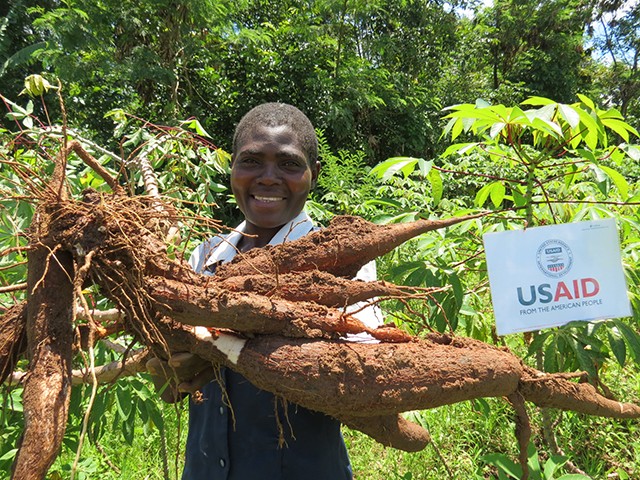By Chris Kosnik, Acting Director of USAID’s Water Office

Greetings everyone! I stepped in as the Acting Director of USAID’s Water Office this past October, and it’s been an exciting time to be here. Last spring, USAID launched its Water and Development Strategy to improve water, sanitation, and hygiene (WASH) and enhance food security. Over the past six months we’ve been working on implementation of the Strategy by developing guidance to our Missions and reaching out to our priority countries to socialize some of the changes that the Strategy brings to our Water programming.
Before joining the Water Office, I managed USAID’s Land Tenure and Resource Management Office. My training and experience brings together natural resource management, agriculture, and adaptation. I have been fortunate to spend many years working around the world from East, West, and Central Africa to Cambodia, Bolivia, and Thailand. I have seen firsthand the importance of integrating water and land management to achieve the strongest development outcomes.
Effective land management requires sound water management, and vice versa. They are two sides of the same coin, and their goals – and their impacts – are interdependent. Under the Strategy, we see this with increased integration of WASH and food security programs. Our water programs will be amplifying the goals of the Feed the Future Initiative by ensuring improved agricultural water management and WASH components are integrated into food security programs whenever possible and appropriate for the local context.
At the nexus of WASH and food security programs lies nutrition. USAID’s Nutrition Strategy is currently under development and will be available later this year. In addition to promoting sustainable food production systems, the draft Nutrition Strategy acknowledges that, “A household’s access to safe, healthy, and diverse foods, health services, and safe water and sanitation underlie adequate nutrition.”
Food insecurity is not just about lack of food. Even if food is plentiful, nutrition can be undermined by high prevalence of diarrheal diseases from unsafe drinking water. Likewise, water can be safe, but communities can’t be healthy without accessible, nutritious food.
Our WASH partners have been very active in promoting our new Strategy. According to UNICEF, successful WASH programs have nearly cut in half – from 1.5 million to around 800,000 – the number of children under 5 who die each year from diarrheal disease. But much remains to be done, and I urge you to remember that our new Strategy is not just a WASH Strategy; it is a Water and Development Strategy.
With more than 70 percent of all freshwater use devoted to agriculture – often in inefficient irrigation systems and with withdrawals tripling over the past 50 years – Feed the Future goals cannot be met without a focus on managing water in agriculture sustainably and more productively.
Ethiopia uses integrated approaches that are leading to increased food security, health, and self-sufficiency. The country has faced significant food security and nutrition challenges for several decades. Widespread poverty coupled with shifts in weather, erratic and insufficient rainfall, and declining agricultural productivity combine to make obtaining adequate food a daily struggle for many Ethiopians. Although there is steady progress in reducing hunger, malnutrition, and child mortality, 44 percent of Ethiopian children are stunted. USAID’s Productive Safety Net Program pairs emergency assistance with irrigation, reforestation, and water supply projects in order to help the most vulnerable Ethiopians get back on their feet—for the long term. USAID’s more than 20 water-related activities in the country support efforts to strengthen resiliency there. Learning from and building on past activities, these programs layer efforts and integrate water, food, health, and disaster relief and recovery.
USAID is committed not only to creating healthy communities, but to sustaining them. We want people to not only survive, but to thrive. Integrated water programs are one means of achieving these goals.
Chris Kosnik has worked at USAID for over a decade. Prior to becoming Water Office director, he served as the director of the Office of Land Tenure & Resource Management.







Comment
Make a general inquiry or suggest an improvement.